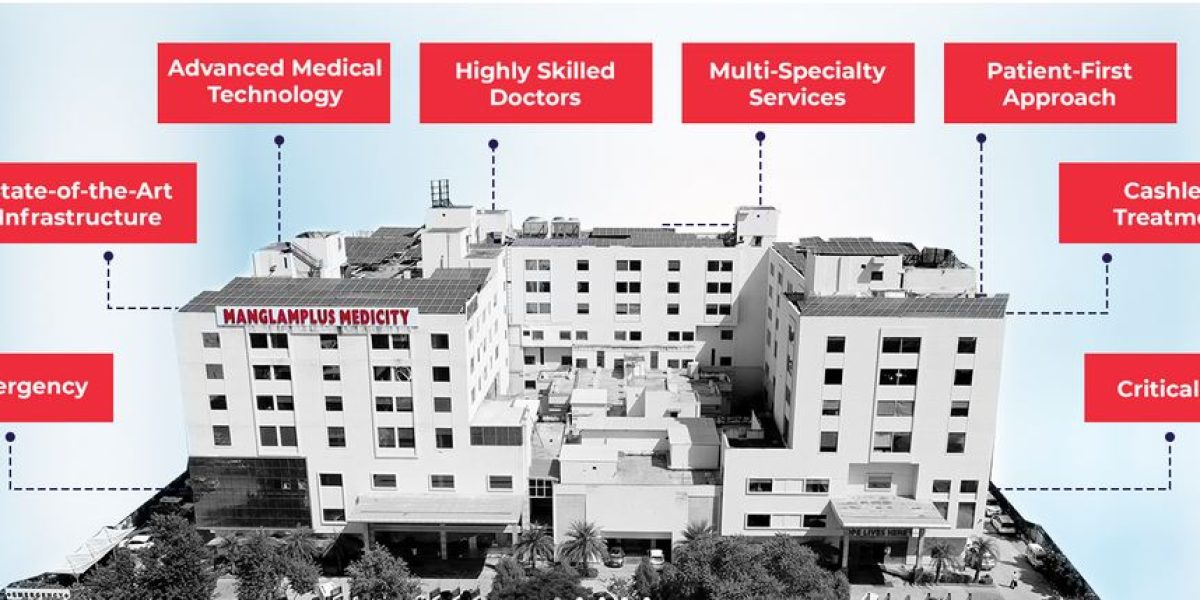n today’s fast-paced world, heart health often takes a back seat, especially among students who juggle academic pressure, irregular sleep schedules, and stress. Understanding basic heart-related medical terms is crucial, not only for your own well-being but also to support those around you. If you’ve ever come across the terms “heart failure” and “heart attack” and assumed they’re the same, it’s time to rethink. According to experts from M2 Hospital, a leading heart specialist hospital in Jaipur, these two conditions are very different and should be treated with individual seriousness.
What Is a Heart Attack?
A heart attack, medically termed a myocardial infarction, occurs when blood flow to the heart muscle is suddenly blocked. This blockage is often caused by a buildup of plaque (fat, cholesterol, and other substances) in the coronary arteries. When the blood flow is disrupted, the heart muscle begins to die due to lack of oxygen.
Common symptoms include:
-
Chest pain or discomfort
-
Shortness of breath
-
Nausea or lightheadedness
-
Pain in one or both arms, the back, neck, or jaw
Immediate medical attention is essential in the case of a heart attack. The quicker the treatment, the better the chances of saving heart muscle and preventing long-term damage.
What Is Heart Failure?
Unlike a heart attack, heart failure is a chronic, progressive condition where the heart isn’t able to pump blood effectively. This doesn’t mean the heart has stopped working altogether—it’s just not working efficiently.
There are two main types:
-
Left-sided heart failure (more common): Fluid may back up into the lungs.
-
Right-sided heart failure: Fluid may back up into the abdomen, legs, and feet.
Symptoms of heart failure include:
-
Persistent coughing or wheezing
-
Swelling in the legs, ankles, or feet
-
Fatigue and weakness
-
Rapid or irregular heartbeat
While heart attacks are sudden, heart failure typically develops over time and can result from conditions like high blood pressure, diabetes, or previous heart attacks.
According to doctors at a heart specialist hospital in Jaipur like M2 Hospital, many patients come in with confusion about these two conditions. It’s crucial to not only know the symptoms but also understand the differences to act swiftly and correctly.
Why Students Should Care
You might be wondering, “Why should I, as a student, worry about this?” Here’s why:
-
Rising Stress Levels: Academic stress, late-night study sessions, and poor dietary habits can gradually affect heart health.
-
Family History: Knowing the signs helps you support family members who might be at risk.
-
First Aid Knowledge: In an emergency, your awareness could save someone’s life.
-
Long-Term Wellness: Habits formed during student life can either strengthen or harm your heart over time.
The Role of Lifestyle in Prevention
Fortunately, both heart failure and heart attack risks can be lowered through lifestyle changes:
-
Eat a balanced diet rich in fruits, vegetables, and whole grains
-
Exercise at least 30 minutes a day
-
Avoid smoking and limit alcohol consumption
-
Manage stress through meditation, yoga, or talking to a counselor
-
Get regular health checkups, especially if you have a family history
M2 Hospital, a renowned heart specialist hospital in Jaipur, provides preventative care and guidance to help you manage your heart health from a young age. Whether you’re just looking to stay informed or need expert advice, having access to specialized cardiologists can make all the difference.
When to Seek Help
Don’t ignore persistent symptoms like chest pain, constant fatigue, or swelling. These signs shouldn’t be chalked up to exam stress or overworking. It’s always better to consult with a cardiologist and rule out any serious concerns.
Final Thoughts
Understanding the difference between a heart attack and heart failure can empower you to make smarter health decisions, especially during your formative years as a student. Awareness and prevention are your best tools. Remember, heart health isn’t just a concern for older adults—it starts with you, today.
If you’re looking for reliable and expert cardiac care, M2 Hospital stands out as a top heart specialist hospital in Jaipur. With modern facilities and skilled cardiologists, they are committed to educating and caring for the community—one heartbeat at a time.
Key Differences You Should Know
Here’s a clear-cut comparison to help you differentiate between the two:
| Feature | Heart Attack | Heart Failure |
|---|---|---|
| Nature | Sudden event | Long-term, chronic condition |
| Cause | Blocked artery | Weak heart muscle |
| Onset | Sudden and intense | Gradual, worsens over time |
| Symptoms | Chest pain, nausea, shortness of breath | Fatigue, swelling, breathing difficulty |
| Treatment Urgency | Emergency treatment needed | Ongoing management |












